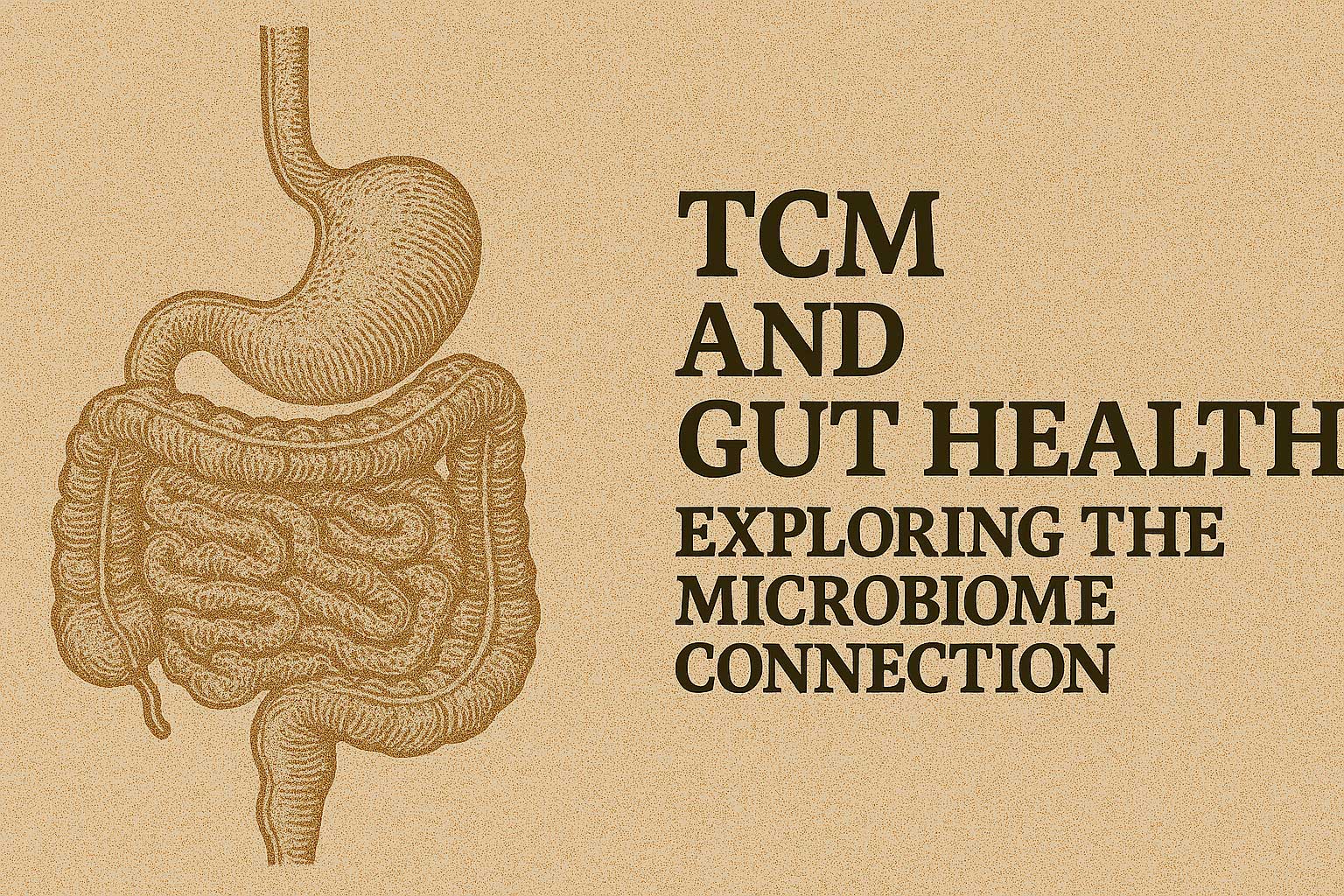In recent years, the human gut microbiome has become a major focus in biomedical research, linked to digestion, immunity, mental health, and chronic disease. Interestingly, Traditional Chinese Medicine (TCM) has long emphasized the importance of digestive health, particularly the role of the Spleen and Stomach in overall vitality.
As modern science uncovers the profound impact of the gut on systemic health, parallels with TCM’s ancient theories are becoming increasingly apparent. This article explores how TCM’s digestive framework resonates with — and even anticipates — key findings in gut microbiome research.
🔶 The Spleen-Stomach Axis in TCM
In TCM, the Spleen and Stomach are considered the “postnatal root of life” — the source of Qi and Blood production through digestion and transformation of food.
| Organ | Role in TCM | Modern Parallel |
|---|---|---|
| Stomach | Receives and breaks down food (rottening and ripening) | Gastric acid, enzymes |
| Spleen | Extracts and distributes essence (nutrients) throughout the body | Absorption and transport via intestines, lymph |
Symptoms of dysfunction in this axis — bloating, fatigue, brain fog, loose stools — often reflect gut dysbiosis from a modern perspective.
🔶 TCM on “Dampness” and “Turbidity”
TCM describes Dampness (湿) and Turbidity (浊) as pathological factors that:
- Obstruct Qi movement
- Damage the Spleen
- Create internal heaviness, foggy thinking, and mucus
Modern studies suggest:
- Excessive refined foods and stress disrupt the microbiome
- Leads to low-grade inflammation, bacterial overgrowth, leaky gut — similar to “Damp-Heat” in TCM
TCM may describe what we now call gut barrier dysfunction and microbial imbalance through its own language of systemic stagnation.
🔶 Herbal Formulas and Microbiota Modulation
Recent research shows that many classic TCM formulas have prebiotic or microbiota-balancing effects.
| Formula | Traditional Use | Microbiome Effect (studies) |
|---|---|---|
| Bao He Wan | Relieves food stagnation and indigestion | Improves gut flora diversity, reduces inflammatory bacteria |
| Shen Ling Bai Zhu San | Strengthens Spleen, stops diarrhea | Enhances Lactobacillus & Bifidobacterium levels |
| Ban Xia Xie Xin Tang | Harmonizes Stomach, relieves bloating | Modulates intestinal permeability, microbial balance |
Several key herbs — like Bai Zhu (Atractylodes), Fu Ling (Poria), and Huang Lian (Coptis) — have shown antimicrobial, anti-inflammatory, and prebiotic-like effects.
🔶 Probiotics vs. Pro-Qi?
While modern medicine may prescribe probiotics, TCM focuses on restoring internal harmony through:
- Qi and Spleen tonification
- Dampness elimination
- Strengthening digestive fire (Yang)
Rather than replacing bacteria, TCM helps the body regulate and restore its own environment — a more ecological, systems-based approach.
🔶 Integrative Potential
TCM and microbiome science can inform each other:
| TCM Insight | Microbiome Relevance |
|---|---|
| Spleen governs transformation | Microbial fermentation of fiber to SCFAs (short-chain fatty acids) |
| Emotion affects digestion | Gut-brain axis and microbiota-linked anxiety/depression |
| Cold/raw diet damages Spleen | Diet alters microbial diversity and inflammation |
| Qi stagnation slows gut motility | Correlated with IBS, SIBO, constipation |
This integrative dialogue can open new therapeutic models for chronic digestive and immune conditions.
🔶 Conclusion
What TCM has observed through centuries of clinical wisdom — that the gut is central to health — is now being echoed in modern microbiome research. From regulating digestion and immunity to mood and metabolism, both systems recognize the gut as a cornerstone of vitality.
Rather than opposing approaches, TCM and microbiome science are natural allies — offering a bridge between ancient insight and modern innovation.


发表回复